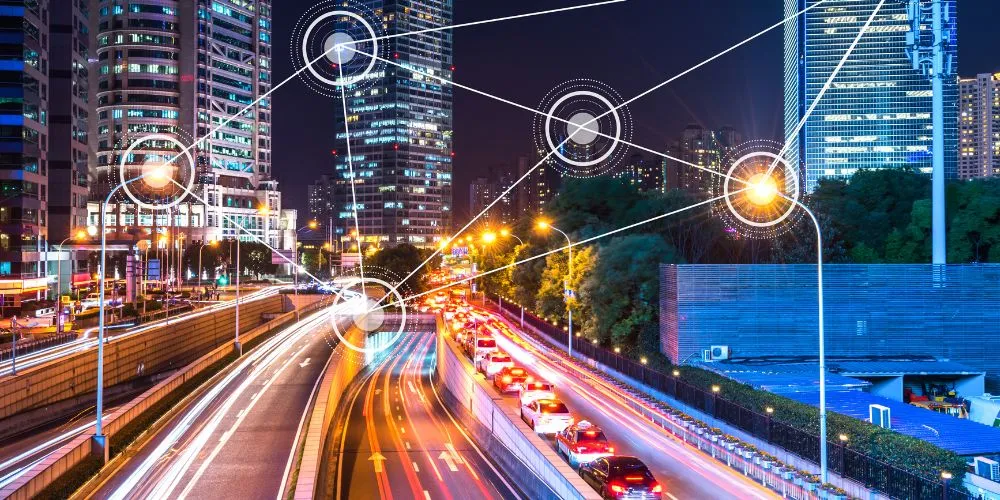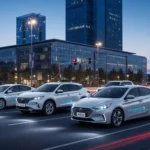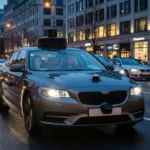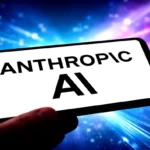Transportation lies at the heart of Smart Cities, serving as a vital artery that connects various facets of urban life. This comprehensive exploration delves into the intricacies of Transportation in Smart Cities, unraveling its fundamental principles, diverse applications, key technologies, and the transformative impact on the efficiency, sustainability, and quality of life in urban environments.
Understanding Transportation in Smart Cities
Transportation in Smart Cities represents a paradigm shift in how cities approach mobility, focusing on integrating advanced technologies to create efficient, sustainable, and interconnected transportation systems. From intelligent infrastructure to data-driven decision-making, these innovations redefine the urban mobility landscape, ensuring a seamless and connected experience for residents.
Key Components of Smart City Transportation
The core components of Transportation in Smart Cities contribute to its multifaceted utility, addressing various challenges associated with urban mobility:
- Intelligent Transportation Systems (ITS): At the heart of Smart City Transportation lies ITS, which incorporates advanced technologies such as sensors, cameras, and communication networks to optimize traffic flow, enhance safety, and provide real-time data for informed decision-making.
- Connected Vehicles: Integrating connected vehicles enables communication between vehicles and infrastructure, reducing congestion, improving safety, and facilitating features such as predictive maintenance and efficient routing.
- Public Transportation Integration: Smart Cities prioritize integrating public transportation systems, including buses and trains, with technology-driven solutions. It enhances the accessibility and efficiency of public transit, encouraging its use and reducing reliance on individual vehicles.
Applications of Transportation in Smart Cities
The applications of Smart City Transportation are diverse, impacting various aspects of urban life and infrastructure:
Intelligent Traffic Management
Smart City Transportation incorporates intelligent traffic management systems that dynamically adjust traffic signals, monitor congestion, and optimize traffic flow. It reduces travel times, lowers emissions, and enhances overall transportation efficiency.
Sustainable Mobility Solutions
In line with the sustainability goals of Transportation in Smart Cities, transportation solutions focus on reducing carbon emissions, promoting electric and hybrid vehicles, and encouraging eco-friendly modes of transport such as cycling and walking.
Last-Mile Connectivity
Efforts are made to address the last-mile connectivity challenge by integrating various modes of transport. It includes bike-sharing, ride-sharing, and micro-mobility solutions, ensuring that residents can seamlessly navigate the final leg of their journeys.
Smart Parking Solutions
Smart City Transportation incorporates smart parking solutions that utilize sensors and data analytics to provide real-time information on parking availability. It reduces traffic congestion and enhances the overall urban parking experience.
Technologies Driving Smart City Transportation
To comprehend the capabilities of Transportation in Smart Cities, it’s essential to delve into the key technologies that underpin its functionality:
Internet of Things (IoT) Sensors
IoT sensors play a pivotal role in Smart City Transportation by collecting real-time data on traffic patterns, air quality, and infrastructure conditions. This data informs decision-making processes and enables the optimization of transportation systems.
Artificial Intelligence (AI) and Machine Learning
AI and machine learning algorithms analyze vast datasets to predict traffic patterns, optimize routes, and enhance the overall efficiency of transportation systems. These technologies enable intelligent decision-making in dynamic urban environments.
5G Connectivity
The deployment of 5G networks ensures high-speed, low-latency communication between vehicles, infrastructure, and other elements of Smart City Transportation. This connectivity is essential for real-time data exchange and the operation of autonomous vehicles.
Electric and Autonomous Vehicles
Smart City Transportation embraces electric and autonomous vehicles as sustainable and efficient alternatives. These technologies reduce emissions, enhance safety, and contribute to the overall transformation of urban mobility.
Challenges in Smart City Transportation Implementation
While Transportation in Smart Cities offers immense benefits, its implementation is challenging. Addressing these challenges is crucial to realizing the full potential of intelligent and connected urban mobility:
Infrastructure Retrofitting
Integrating Transportation in Smart Cities solutions often requires retrofitting existing infrastructure. The challenge lies in adapting legacy systems to accommodate new technologies and ensuring seamless interoperability between different components.
Data Privacy and Security
The collection and utilization of vast amounts of data in smart city transportation raises concerns about privacy and security. Safeguarding sensitive information and ensuring secure communication channels are paramount in building public trust.
High Initial Costs
The upfront costs associated with deploying smart transportation solutions can be significant. Cities must navigate budget constraints while making strategic investments that will yield long-term benefits for residents and the urban environment.
Public Awareness and Acceptance
Successful implementation requires public awareness and acceptance of new transportation technologies. Educating residents about the benefits of smart mobility, safety measures, and sustainability is crucial for fostering community support.
Future Trends in Smart City Transportation
As technology continues to advance, the future of Smart City Transportation promises exciting trends that will further redefine urban mobility and enhance the quality of life for city dwellers:
Seamless Integration of Autonomous Vehicles
The seamless integration of autonomous vehicles into urban transportation networks is a transformative trend, encompassing autonomous public transport, delivery vehicles, and ride-sharing services, which redefine mobility dynamics.
Multi-Modal Transportation Platforms
Future Smart City Transportation platforms will focus on integrating various modes of transport into cohesive, user-friendly solutions. It involves creating platforms that seamlessly connect buses, trains, bikes, and ride-sharing services for a holistic urban mobility experience.
Advanced Mobility as a Service (MaaS) Models
Mobility as a Service (MaaS) models will continue to evolve, offering advanced solutions that provide comprehensive and personalized transportation services. These models may include subscription-based plans, predictive analytics for optimal routing, and customized mobility experiences.
Green Infrastructure and Eco-Friendly Corridors
Smart City Transportation will increasingly prioritize green infrastructure, including eco-friendly corridors for cycling and walking, to promote sustainable mobility. This trend aligns with sustainability goals, promoting healthier and more sustainable modes of urban transportation.
Conclusion
Transportation in Smart Cities is a beacon of innovation in urban planning and mobility, reshaping how cities move, connect, and grow. From intelligent traffic management to sustainable mobility solutions, these advancements are instrumental in creating cities that are efficient, connected, environmentally conscious, and user-centric. Challenges notwithstanding, the ongoing integration of advanced technologies, coupled with future trends such as autonomous vehicles, multi-modal platforms, and advanced MaaS models, signals a dynamic future for Smart City Transportation.
As cities continue to embrace these transformative changes, urban dwellers can look forward to a future where transportation is not just a means of getting from point A to B but a seamless and intelligent part of the urban experience, fostering a higher quality of life for all.





